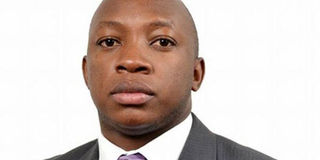Rethink Makerere University’s new tuition policy

What you need to know:
Their plan was to walk peacefully to Parliament and hand over a petition to the Speaker. A section of soldiers accosted them, arrested them and bundled them onto a waiting Police truck. The students were driven to Wandegeya Police Station and detained.
On the October 21st, a group of five (5) female students emerged from their rooms at Complex Hall of Makerere University dressed in black and holding placards demonstrating against what they termed as an unfair fees policy implemented by the University. Their plan was to walk peacefully to Parliament and hand over a petition to the Speaker. A section of soldiers accosted them, arrested them and bundled them onto a waiting Police truck. The students were driven to Wandegeya Police Station and detained.
This action turned a rather peaceful event into a fully blown strike action by university students that has lasted days.
The response of Makerere University management makes a very good case study for communication and brand reputation managers on what not to do during a crisis; they have been arrogant and aloof and almost deliberately oblivious of the role the university has always played in Uganda’s higher education sphere.
It has been a gross public relations issue, penultimately, and an internal system failure that should be noted.
However, the gist of the strike should not be lost. Is the fees increment justifiable?
The 2017 Education Monograph from Uganda Bureau of Statistics puts Uganda’s Tertiary Gross Enrolment at only 4 per cent which is below the Sub-Saharan average of 6 per cent and far below the world average of 26 per cent. The report further states that Uganda requires 40 per cent tertiary enrolment to achieve a middle-income status by 2020. Yet the government of Uganda can only afford to sponsor less than 10 per cent of those who qualify for tertiary education. What happens to the rest? Subsidies through the private sponsorship scheme is the way to go.
The past three decades have witnessed an increase in higher education enrolment. This increase was more in the mid-1990s to early 2000s, perhaps due to the inception of private sponsorship at Makerere University in 1992 (Bisaso, Ronald 2017). In fact, there was an annual increase in enrolments by 12 per cent in the period 1994–1999. This was projected to rise by 92 per cent in enrolments for 2008–2015 (Kasozi, 2002).
A 2000 Report by the World Bank Taskforce on Higher Education and Society noted that developing countries needed to focus more on higher education to provide specialised skills to the increasing number of students, because specialists are increasingly in demand in all sectors of the world economy. The taskforce recommended that each developing country makes it a national priority “to debate and determine what it can realistically expect its higher education system to deliver”. The debate, it added, must be informed by historical and comparative knowledge about the contribution of higher education to social, economic, and political development. Unfortunately for Uganda, this debate always degenerates into politicking and accusations of regime change aspirations.
The government of Uganda implemented an important policy of regionalisation of Public Universities to improve access. The Universities have since been regionally located on the basis of equity and access to higher education, with Mbarara University of Science and Technology being established in the West, Gulu University in the North, and Busitema University in the East.
The Government also introduced affirmative action for female undergraduate students who are given 1.5 bonus points on their weights for admission, which greatly improves chances of admission for the female students. To address regional inequality,student quotas for entry to university were allocated to various districts(local administrative entities) to increase access especially in disadvantaged or hard-to-reach districts (Bisaso, Ronald 2017). Why then does Makerere feel the need to reverse these efforts to improve access by increasing tuition fees?
The government of Yoweri Museveni, the instigator of the progress aforementioned must cast it in a forward trajectory and make it irreversible.
Education is a social service and must not be treated as a “business” because it has social justice implications-it has a direct effect on how one earns a living and access to opportunity. It should equalise society not perpetuate exclusion in the name of “profit”. We should never use fees to limit access to social services. Education and health must always be equalisers and not symbols of privilege. There is growing evidence that university education, through its role in empowering domestic constituencies, building institutions, and nurturing favourable regulatory frameworks and governance structures, is vital to a country’s efforts to increase social capital and to promote social cohesion, which is proving to be an important determinant of economic growth and development – the very case for the provision of Universal Primary and Secondary education. The bulk of the privately sponsored students at Makerere are a product of these two noble programmes.
Makerere University receives a substantial amount of funding in the form of tuition fees paid by students in privately sponsored programmes. In fact, private funding has exceeded government funding since 2002–2003 (Makerere University, 2013). It is high time the government reconsidered the financing model for higher education. We can consider blanket financing through the student loan scheme which can be expanded to cover all those who qualify if need be, something similar to the National Students Financial Aid Scheme (NSFAS) in South Africa.
The cumulative increase in fees that Makerere University is proposing will eventually exclude thousands. As the students continue their demands for a rescindment of the fees policy, it is important that young parents today think about what the increment will mean for them when their children get to a university going age.
If this policy is actualised as planned, it will hugely disorganise and ultimately fail the president’s goal of Uganda’s socio-economic transformation.
Denis Nabende is a Masters Student at Makerere University


